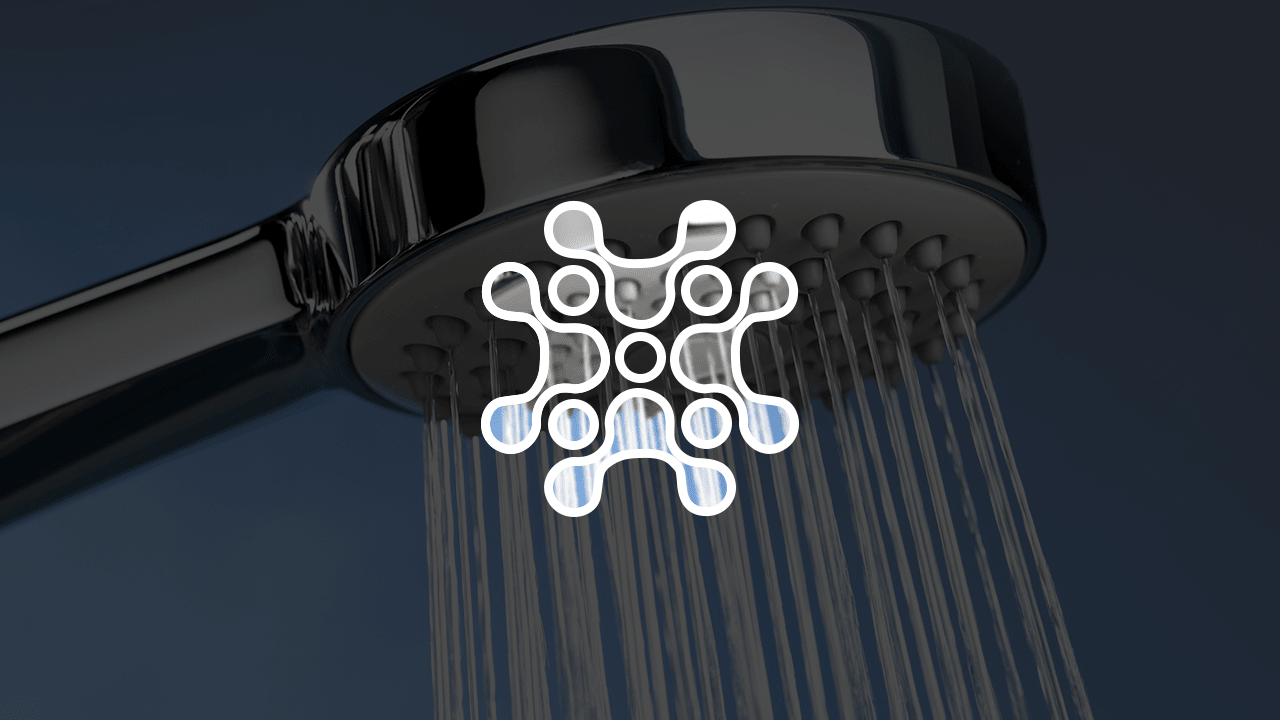Woda jest niezbędnym zasobem, na którym polegamy podczas picia, gotowania i różnych czynności domowych. Czasami jednak możemy napotkać nieprzyjemny zapach siarki pochodzący z naszej wody. Ten wyraźny zapach, przypominający zgniłe jaja, może być dość odpychający. W tym artykule zbadamy przyczyny zapachu siarki w wodzie, potencjalne zagrożenia dla zdrowia z nim związane, skąd może pochodzić i jak skutecznie wyeliminować ten zapach.
Co powoduje zapach siarki w wodzie?
Obecność zapachu siarki w wodzie przypisuje się przede wszystkim obecności siarkowodoru. Siarkowodór to bezbarwny gaz, który może być naturalnie wytwarzany w wodach gruntowych, szczególnie na obszarach o wysokiej zawartości siarki w glebie. Gaz ten powstaje zwykle, gdy materia organiczna rozkłada się i reaguje z bakteriami siarkowymi lub bakteriami redukującymi siarczany obecnymi w wodzie. Nawet w niewielkich stężeniach siarkowodór może powodować wyczuwalny i nieprzyjemny zapach.
Zagrożenia dla zdrowia związane z zapachem siarki w wodzie:
Chociaż zapach siarki w wodzie może być nieprzyjemny, należy zauważyć, że obecność siarkowodoru niekoniecznie stanowi bezpośrednie zagrożenie dla zdrowia. W rzeczywistości Agencja Ochrony Środowiska (EPA) nie ustaliła konkretnego standardu dla siarkowodoru w wodzie pitnej ze względu na jego estetyczny charakter. Jednak długotrwałe narażenie na wysokie stężenie siarkowodoru może powodować bóle głowy, nudności i inne nieprzyjemne objawy. Ponadto obecność siarkowodoru może wskazywać na możliwe istnienie innych szkodliwych zanieczyszczeń w wodzie, którymi należy się zająć w celu zapewnienia ogólnego bezpieczeństwa zaopatrzenia w wodę.
Skąd może pochodzić zapach siarki w wodzie:
Jeśli wykryją Państwo zapach siarki w wodzie, kluczowe jest zidentyfikowanie źródła problemu. Jednym z najczęstszych źródeł jest prywatny system studni. Studnie mogą często zawierać bakterie siarkowe, które wytwarzają siarkowodór podczas rozkładu materii organicznej. Innym potencjalnym źródłem jest podgrzewacz ciepłej wody. Ciepła woda może zwiększać uwalnianie siarkowodoru, prowadząc do silniejszego zapachu siarki. Zapach siarki może również pochodzić z instalacji wodno-kanalizacyjnej lub miejskiej sieci wodociągowej, choć te przypadki są mniej prawdopodobne.
Jak usunąć zapach siarki w wodzie:
Aby wyeliminować zapach siarki w wodzie, dostępnych jest kilka opcji:
- Zidentyfikować i oczyścić źródło: Jeśli posiadają Państwo prywatny system studni, zaleca się przeprowadzenie testu wody w celu ustalenia dokładnej przyczyny zapachu siarki. Test ten pomoże zidentyfikować obecność bakterii siarkowych, siarkowodoru lub innych zanieczyszczeń. Uzdatnianie wody ze studni chlorem, nadtlenkiem wodoru lub innymi środkami dezynfekującymi może pomóc wyeliminować bakterie siarki. Konsultacja z profesjonalistą lub specjalistą ds. uzdatniania wody może dostarczyć wskazówek dotyczących odpowiedniej metody uzdatniania w oparciu o wyniki testu.
- Zainstalować filtr wody: Filtr wody, specjalnie zaprojektowany do usuwania siarkowodoru, może skutecznie usunąć zapach siarki z wody. W tym celu powszechnie stosuje się filtry z węglem aktywnym, filtry utleniające lub specjalistyczne filtry medialne. Na stronie internetowej Ecosoft można znaleźć odpowiedni filtr dla swoich potrzeb lub jeśli nie są Państwo pewni, co będzie dla Państwa najlepsze, mamy specjalne narzędzie Water Solution Wizard, które pomoże Państwu wybrać optymalne rozwiązanie. Filtry te można zainstalować w punkcie wejścia lub w określonych punktach użytkowania, takich jak krany lub prysznice. Regularna konserwacja i wymiana filtra są niezbędne do zapewnienia jego ciągłej skuteczności.
- Płukanie systemu: Od czasu do czasu przepłukanie instalacji hydraulicznej może pomóc zmniejszyć zapach siarki. Można to zrobić, puszczając wodę ze wszystkich kranów i armatury przez kilka minut, aż zapach ustąpi. Płukanie systemu pomaga usunąć stojącą wodę, która może zawierać siarkowodór i odświeża wodę.
Zapach siarki w wodzie, przypominający zgniłe jajka, jest spowodowany obecnością siarkowodoru. Chociaż nie stanowi on bezpośredniego zagrożenia dla zdrowia, zapach ten może być nieprzyjemny i może wskazywać na obecność innych zanieczyszczeń. Jeśli napotkają Państwo zapach siarki w wodzie, ważne jest, aby zidentyfikować źródło problemu. Prywatne systemy studni, podgrzewacze ciepłej wody i systemy hydrauliczne są częstymi winowajcami. Uzdatniając źródło, instalując filtr wody lub przepłukując system, można skutecznie wyeliminować zapach siarki i cieszyć się czystą i wolną od zapachu wodą w codziennym życiu.
Faqs
Jak pozbyć się zapachu siarki z wody?
Istnieje kilka metod usuwania zapachu siarki z wody. Jednym z powszechnych rozwiązań jest stosowanie filtrów z węglem aktywnym, które mogą skutecznie absorbować i neutralizować gazowy siarkowodór. Ponadto systemy napowietrzania mogą wprowadzać tlen do wody, pomagając zmniejszyć obecność gazu. W celu wyeliminowania zapachu siarki można również zastosować chlorowanie lub metody utleniania chemicznego. Zaleca się skonsultowanie się ze specjalistą ds. uzdatniania wody w celu określenia najbardziej odpowiedniej metody dla Państwa konkretnej sytuacji.
Czy można zapobiec zapachowi siarki w wodzie?
Zapobieganie zapachowi siarki w wodzie zależy od konkretnego źródła problemu. W przypadku wody ze studni kluczowe znaczenie ma regularna konserwacja i monitorowanie systemu studni. Zapewnienie odpowiedniej wentylacji i dezynfekcji studni może pomóc zminimalizować rozwój bakterii wytwarzających siarkę. Ponadto zajęcie się wszelkimi problemami związanymi z systemami wodno-kanalizacyjnymi, takimi jak skorodowane rury lub podgrzewacze ciepłej wody, może również zapobiec zapachowi siarki. Regularne testowanie i uzdatnianie wody, jeśli to konieczne, może pomóc w utrzymaniu jakości wody i zapobieganiu nawrotom zapachu siarki.
Czy zapach siarki w wodzie jest szkodliwy?
W większości przypadków zapach siarki w wodzie nie jest szkodliwy dla zdrowia ludzkiego. Może jednak być nieprzyjemny i wpływać na smak wody pitnej, czyniąc ją mniej pożądaną. Ponadto wysoki poziom siarkowodoru może być toksyczny i stanowić zagrożenie w przypadku wdychania go w dużych ilościach. Zaleca się zajęcie się kwestią zapachu siarki w wodzie, aby poprawić jej jakość i wyeliminować wszelkie potencjalne zagrożenia dla zdrowia.
Co powoduje zapach siarki w wodzie?
Obecność zapachu siarki w wodzie jest zwykle spowodowana obecnością siarkowodoru. Gaz ten może być wytwarzany podczas rozkładu materii organicznej, szczególnie w środowiskach o niskim poziomie tlenu, takich jak wody gruntowe i studnie. Bakterie, które rozwijają się w takich warunkach, uwalniają siarkowodór jako produkt uboczny, co prowadzi do charakterystycznego zapachu zgniłych jaj w wodzie.








